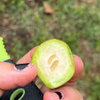Getting Discouraged- Need Your Best Tips
12 years ago
Related Stories

REMODELING GUIDESContractor Tips: 10 Ways to Get the Remodel You Want for Less
Lighten the load on your remodeling budget without sacrificing your design by heeding this insider advice
Full Story
ORGANIZINGGet Up to Speed for Back to School — 12 Tips for Smooth Sailing
New schedules and clothes, paperwork piles ... and where did all the Band-Aids go? These tips will help you ace the new school year
Full Story
REMODELING GUIDESContractor Tips: 5 Easy Ways to Get a Greener Home
Forget a fleet of solar panels (for now). These ideas can make your home a whole lot greener when money or time is in short supply
Full Story
BATHROOM DESIGN10 Top Tips for Getting Bathroom Tile Right
Good planning is essential for bathroom tile that's set properly and works with the rest of your renovation. These tips help you do it right
Full Story
DECORATING GUIDES5 Decorating Tips for Getting Scale Right
Know how to work art, sectionals, coffee tables, lamps and headboards for a positively perfect interior
Full Story
RUGS10 Tips for Getting a Dining Room Rug Just Right
Is the rug you’re considering the right size, shape and weave for your dining room? Here’s what to keep in mind
Full Story
LIFE7 Tips to Get With a New Minimalist Mentality
Feeling overwhelmed by your stuff? Here's how to pare down, simplify and keep just what you need and love at home
Full Story
LIFEMorning Nook Tips for Sleepyheads to Get-Up-and-Goers
Whether you whack the snooze button or spring out of bed, these ideas can help you create a refreshing space that helps you on your way
Full Story
STUDIOS AND WORKSHOPS11 Tips to Get the Creative Space You Crave
Life, liberty and the pursuit of your craft. OK, that's paraphrased, but we think you have the right to an inspiring workspace of your own
Full Story
TRIMTrim Color Tips: Get Your White Trim Right
Set off wood tones, highlight architectural features, go minimalist ... white trim is anything but standard when you know how to use it
Full Story



bluegoat_gw
gardenlen
Related Discussions
What's your best tips for keeping flower pots from being stolen?
Q
Sustainability-your best tips!
Q
Hindsight is 20/20 - 3 of your best tips for beginners
Q
Need Your Best Travel Tips Packing/Security
Q
bettyd_z7_vaOriginal Author
User
elisa_z5
Belgianpup
pnbrown
bettyd_z7_vaOriginal Author
pnbrown
feijoas
pnbrown
bettyd_z7_vaOriginal Author
dolzadell
bettyd_z7_vaOriginal Author
HIWTHI
bettyd_z7_vaOriginal Author
RpR_
pnbrown
RpR_
bettyd_z7_vaOriginal Author
pnbrown
bettyd_z7_vaOriginal Author
pnbrown
budbackeast
flora_uk
pnbrown
bettyd_z7_vaOriginal Author
sudzy
jolj